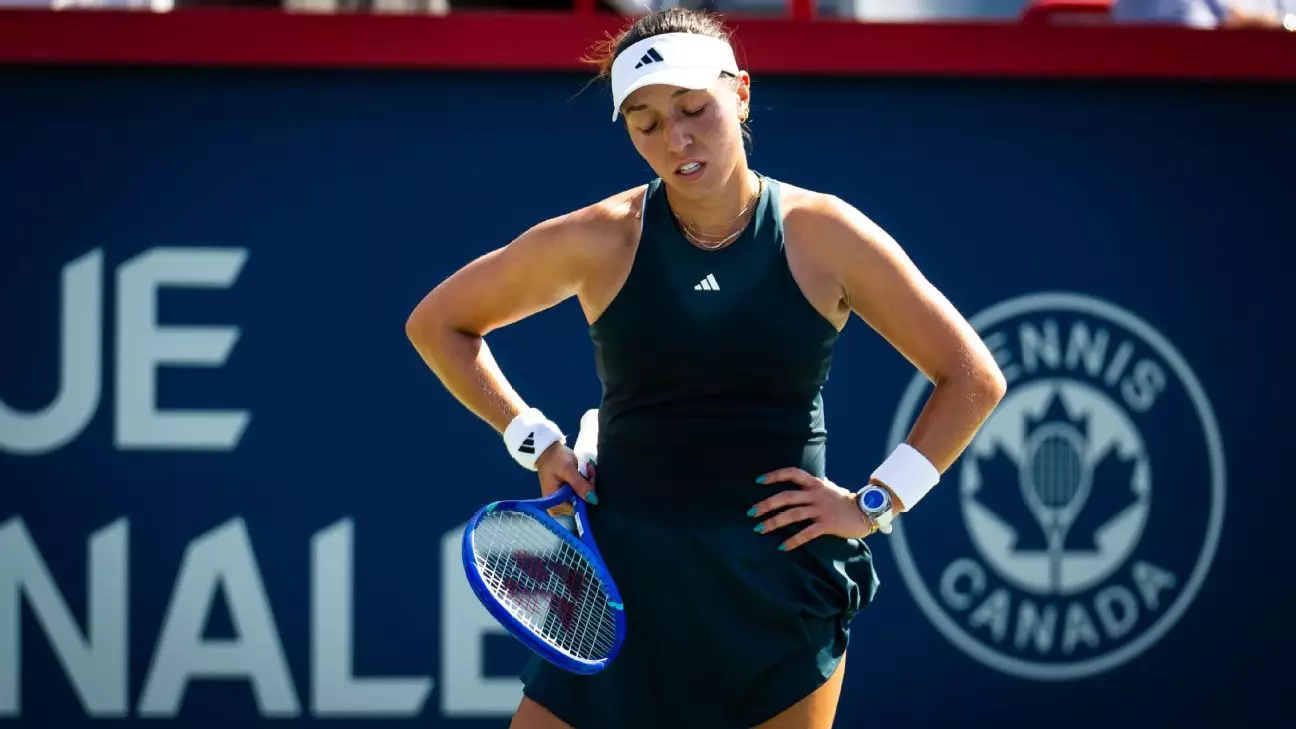In the fast-paced landscape of professional tennis, where youth often takes center stage, veteran players like Anastasija Sevastova demonstrate that resilience and experience can redefine expectations. Despite her ranking plummeting to No. 386—a consequence of injuries and time away—Sevastova’s recent victory over two-time defending champion Jessica Pegula serves as a potent reminder that perseverance can triumph over rankings and perceived decline. Her story challenges the mainstream narrative that only the young and rising can succeed at the highest levels. In a sport increasingly driven by power and speed, Sevastova’s strategic gameplay and mental toughness highlight that skill, adaptability, and grit remain invaluable commodities.
Her victory also underscores an essential truth: tennis careers are often more nuanced than rankings reflect. Sevastova’s ability to break Pegula six times despite limited match play over four years illustrates her tactical intelligence and mental stamina. Her comeback from a torn ACL and maternity leave exemplifies a fighter’s spirit that transcends age—reminding us that the physical and emotional scars of setbacks can forge even more formidable competitors. Such stories challenge the modern obsession with youth, emphasizing that the essence of excellence lies in resilience, strategic refinement, and unyielding determination.
The Fragile Nature of Confidence and Performance in the Modern Game
Jessica Pegula’s early exit from Montreal signals a broader concern about consistency among top-ranked players. Pegula, despite her recent career-high rankings and solid performances, appears plagued by self-doubt and lapses in form. Her candid acknowledgment of playing “sloppy” and feeling “up and down” reveals the fragile mental state that can undermine even the most talented athletes. This vulnerability is increasingly evident across the sport, especially among players who have tasted success but struggle to replicate it with unwavering consistency. The highs and lows of their performances illustrate how mental resilience is as critical as physical conditioning.
Meanwhile, new stars like Iga Swiatek are carving out their dominance through relentless focus and strategic mastery. Swiatek’s impressive 6-2, 6-2 win demonstrates her ability to maintain a high level of play under pressure, a trait that separates the good from the great. Her neutralization of opponent Eva Lys’ game, coupled with her composed demeanor, signals that mental toughness and tactical discipline are central in today’s game. Swiatek’s focus on consistency and adaptability exemplifies the intentional effort necessary to sustain success at the elite level, especially as ATP and WTA tours become more competitive and unpredictable.
Rethinking the Power of Experience in a Youth-Obsessed Sport
Sevastova’s victory is more than just a Cinderella story; it’s a call for a broader reconsideration of how experience influences tennis outcomes. Her recent win over Pegula, a player heralded for her power and potential, demonstrates that age and recent inactivity are not insurmountable barriers. In fact, her success adds weight to the argument that seasoned players bring a depth of tactical knowledge and composure that can outperform raw athletic prowess—especially in high-stakes moments.
This perspective could catalyze a shift in how coaches, players, and fans view aging athletes. Perhaps it’s time to celebrate longevity and strategic adaptability rather than solely chasing the next generation of prodigies. Sevastova’s story also shows that setbacks—like injuries or breaks from the tour—don’t have to mark the end of a career. Instead, they can serve as catalysts for evolution and renewal. As tennis evolves into a game that rewards versatility, mental strength, and tactical ingenuity, veterans like Sevastova are uniquely positioned to rise again, challenging stereotypes and inspiring a more inclusive view of success in professional sports.
The Cultural Shift: Reimagining Success and Longevity in Tennis
The current tournament results point toward a larger cultural narrative: success in sports is no longer solely defined by youth but by resilience, strategic longevity, and psychological endurance. Sevastova’s win, coupled with Osaka’s steady progress and Keys’ gritty comeback, showcase a landscape where experience is an asset rather than a liability. These stories defy the conventional wisdom that only the young can dominate.
In this context, the emphasis should shift toward nurturing players who have navigated obstacles and returned stronger. Their journeys provide vital lessons in perseverance, adaptation, and mental fortitude—traits that are arguably more valuable than raw talent alone. As tennis fans and stakeholders begin to appreciate these qualities, the sport could become more inclusive of different career trajectories, celebrating a broader spectrum of success. What we witness now is a transformation in how excellence is perceived—one that elevates resilience and strategic mastery alongside athletic prowess.
In the end, these unexpected wins and comebacks serve as powerful testament that tennis remains a dynamically unpredictable sport. They affirm that experience, grit, and mental tenacity are timeless attributes capable of rewriting the storylines we expect from tennis’s future champions.

